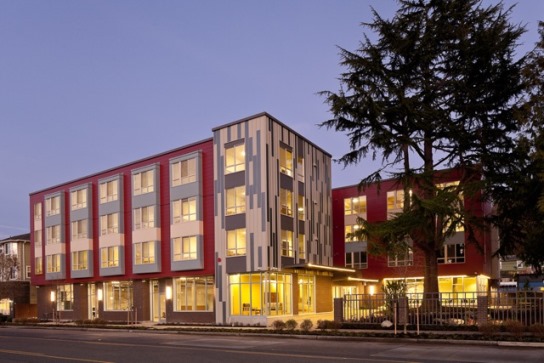
For 20 years, Margaret lived a “very rough life of homelessness.” But, today thanks to state investments in affordable housing, she is living in a safe, healthy, affordable home. Diagnosed with paranoid schizophrenia and bipolar disorder, she was frequently on and off the streets. She had lost count of how many times a month she had entered and exited emergency rooms, mental health wards, and law enforcement facilities. Because of her mental health condition, she found it extremely difficult to secure housing. “Using drugs was one of the only ways I could keep warm…especially living in a cardboard box…everyday…in the snow.” Some days she actually had the proper meds that stabilized her mental health. But without a safe home, her pills were often stolen, along with the rest of her belongings. At one of her lowest points, Margaret developed an antibiotic-resistant infection. Fortunately, she had access to respite care, which afforded her the opportunity to apply for permanent supportive housing. Then after more than two decades of living on the streets, she secured a studio apartment at DESC’s permanent supportive housing development Cottage Grove Commons (see right).
Image

Funded with essential Capital Budget dollars, DESC's 66-unit Cottage Grove Commons is a national model for permanent supportive housing. |
The transition wasn’t easy. After living on the streets for as long as she had, having a home for the very first time in her life was terrifying. “It was so quiet…I wasn’t used to it!” Her new reality was so shocking, she had a psychotic break and spent three weeks at a nearby mental health facility. In December 2014, Margaret celebrates one year of living safely off the streets and in a home. She attributes much of her ongoing stability to Cottage Grove Commons’ in-facility case manager and visits with medical practitioners. “I’m not so depressed anymore…I love the sense of security. [I’m so happy] that I’m now building a relationship with my children…and grandchildren…My daughter just had a baby!”
Economically, Margaret's story is a success for taxpayers. Instead of frequently utilizing expensive emergency services living on the streets, she can access lower-cost regular services at Cottage Grove Commons. Margaret is living proof that permanent supportive housing developments like Cottage Grove are making a huge difference for chronically homeless individuals living with severe mental illness. “[Legislators] should know that homelessness is a lonely place that no one wants to be in. People need a stable environment to help heal from the devastation of the streets."
Go here to learn more about our proposed legislative solution.
Return back to the 2015 State Legislative Advocacy Agenda page.

